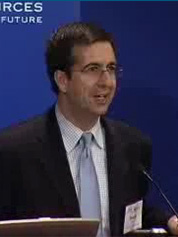Peering Behind OIRA’s Veil of Secrecy
Legal Planet: Environmental Law and Policy 2014-02-19

OIRA is an agency whose functions are as mysterious to most people as its name. It doesn’t help much to learn that OIRA stands for Office of Information and Regulatory Affairs. The phrase “regulatory czars” is more informative. OIRA runs the federal government’s regulatory process. Although agencies like EPA are required to have a lot of transparency, not much public information is available about who works at OIRA or what they do. But Greenwire has managed to accumulate some very interesting information about OIRA’s staff and their work. Here are some quick takeaways:
- Staffing levels have been cut by almost half since the office’s heyday under Reagan.
- Although the office’s main function is supervising cost-benefit analysis, only a handful of staffers have economics Ph.Ds. ”The most common degree is a master’s degree in public affairs, public policy or public administration. There is also considerable expertise, in statistics, law, information technology and environmental science.”
- The office has five sections: statistical and science policy; food, health and labor; transportation and security; natural resources and environment; and information policy. (Even that is more than you can find out from OIRA’s website)
- The desk officers who superintend particular rules are in their 20s or early 30s — in other words, not very experienced. On average, they stay four or five years, so their opportunity to acquire expertise is limited.
- “The pay isn’t bad. Many OIRA staffers listed on recent White House meeting records were making upward of $100,000 in 2012.” But hours are long, and the workload is heavy.
The key takeaway is that OIRA has far less expertise or time to learn the details of particular issues than the staff of EPA. OIRA may fill the gap by outsourcing some of the work to economists elsewhere in the federal government. But it’s easy to see why agency heads and cabinet officers don’t have much respect for OIRA’s expertise.